The revolt against the modern world and the initiatory journey of the young Stephen through his encounter with angels, demons and the ancient pagan powers of the English Motherland, in this undiscovered jewel of the Seventies British folk-horror.
di Marco Maculotti
« Oh my country, I say over and over… I am one of your sons, this is true. I am. I am. Yet, how shall I show my love? "(Incipit)
Among the spearheads of the strand folk horror British XNUMXs - sometimes considered part of an ideal encompassing tetralogy The Wicker Man (Anthony Shaffer / Robin Hardy, 1973) [1], Witchfinder General (Michael Reeves, 1968) e Blood on Satan's Claw (Piers Haggard, 1970) - Penda's Fen is a television drama written by David Rudkin and directed by Alan Clarke, which first aired on March 21, 1974 as part of the series Play for Today, produced by the BBC.
Cryptic and dreamlike film, set in a rural England where the dogmas of Christianity and those of military corporatism seem to merge in a way that is as unnatural as it is inevitable, Penda's Fen appears first of all as a drama of diversity centered on the one hand on a desire to escape from a society that tends to suffocate the individual potential of its individual children, on the other by an even stronger yearning: knowledge of the deepest self and its realization [2]. Two aspirations which, as we will see in the continuation of this article, appear inextricably linked in the thread of the narrative.
David Rudkin in Penda's Fen it essentially merges two perspectives and skillfully intersects them: that of the aforementioned trend folk horror - whose topos they are usually listed as follows: "psychogeography, hauntology, folklore, cultural rituals and custom, earth mysteries, visionary landscapism, archaic history- and the more purely political one, of social criticism. Penda's Fen «it's a bloody political piece"Says Rudkin, who adds that he has always considered himself a"political writer» [3].
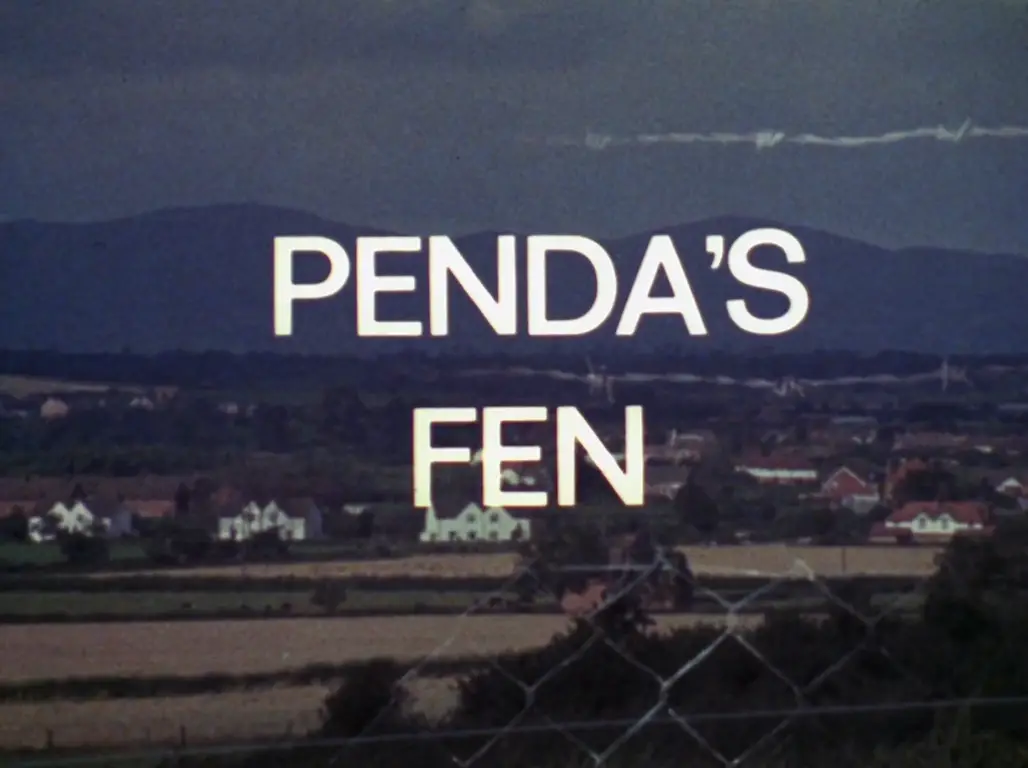
The young protagonist Stephen Franklin contains in his person all the contradictory aspects that distinguish society and the time in which he lives: the son of a prelate but doubtful of the dogmas of Christianity, extremely loyal to rules that at the same time seem to slowly erode him from within, continually tempted by visions of a homosexual character that seem to conflict with his longing for a sort of 'holiness'. During one of the final scenes, the young man utters one of the most significant sentences of the film:
« I am nothing as well! My race is mixed! My sex is mixed! I am woman and man, light with darkness, nothing pure! I am mud and flame! »
Stephen's drama is not so much in his 'dark' sides as his Gaelic-Welsh origins confirmed by the tawny color of his hair - characteristics that in folklore, it should be noted, were considered connected to that "Secret Kingdom" of the mounds in which, according to tradition, the ancient inhabitants of the British archipelago lived, the Tathua de Danann of Celtic myths - or his sexuality which he feels as 'deviant'. Her drama, we said, is better understood if one takes into account the apparently insurmountable opposition between what he is meant to be e what it wants to be, or better to say what others want him to be.
A word that the young man seems obsessed with is "unnatural”, Which he repeats obsessively and almost mechanically whenever his impulses, thoughts or actions make him move away from that ideal image of himself that society demands from him. An ideal allegory for the prison in which Stephen feels imprisoned is a dream vision that he experiences following a fainting, in which the mayor of the village calls together all the young people to cut off their hands on a large tree trunk.
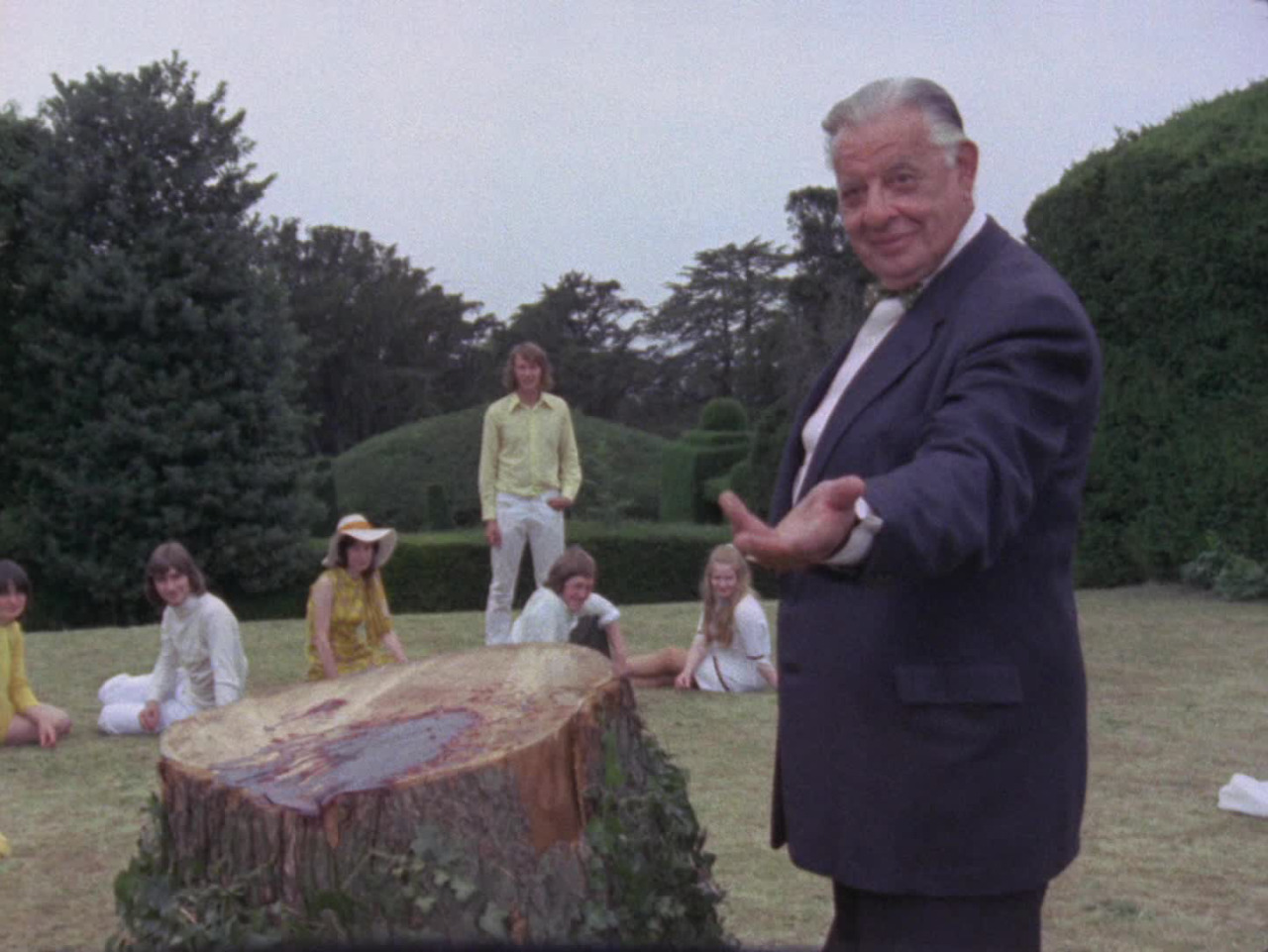
But let's go in order. The first relevant event of Stephen's 'initiatory journey' - because this, as we will see, is the fruition of a piece of classical music entitled "The Dream of Gerontius", Written under a sort of 'divine inspiration' by Sir Edward Elgar, a composer who was born and lived in Pinvin, the rural village where Stephen himself spends his youth. Gerontius - literally: "old man" - in the vision of the musician lives, after his death, a supernatural experience in which he meets angelic and demonic figures. The music portrays this experience post-mortem:
« Surely the most shattering moment in all of music. To hear in your head such sounds. To be a man. Have heaven and hell between your ears and write them down in notes. And walk those hills, and hear the angel and the demon. The judgment, on those hills. And hear the dissonance that is the piercing glance of God. »
Stephen, dazzled as in a vision, understands that the musician-poet's message was "also and above all for non-Christians": how else to explain the fact that both the encounter with the demon and the one with the angel seem to crown life of Gerontius and do not appear instead in contrast with each other? Nonetheless, "Gerontius's Dream" causes a crisis in young Stephen. He understands this twofold encounter post-mortem is none other than "The Judgment of God”And finally comes to the conclusion that not only at the moment of death this judgment is experienced, but every single day of our life, in all those moments of 'crisis' in which we find ourselves in front of the“ throne of God ”.
Subsequently Stephen himself lives a dreamlike experience in all respects similar to the "Dream of Gerontius", in what is defined in the film "Manichean dream". Stephen, just like Gerontius - and, supposedly, Elgar - experiences in a non-ordinary state of consciousness a supernatural encounter first with a demon, then with an angel. But there is more: Stephen claims to be able to transform the demon into the angel in the dream state, and then vice versa. He thus understands that the two subjects are not so different, and that indeed they could be two sides of the same coin, extreme poles of a real one coincidence oppositorum which governs the entire existence of every single human being, even in its most abysmal recesses.
Stephen is aware that the Manichaeists "believed that light is a valuable spark in man, under constant attack from the forces of darkness», But he is not aware of the more 'heretical' aspects of the doctrine. It is his father himself, the Reverend Franklin, who makes him aware, exposing to him what at first glance seems to Stephen a blasphemy: for the followers of Mani, Jesus would have been only one of the many "Sons of Light"; the real Savior will come only for the final battle and will definitively release the spark of divine light in man, which until then will be oppressed by darkness which is inherent in the sublunary world and, therefore, also in the human heart.
We find ourselves in the presence, as it is easy to guess, of Gnostic themes that, if on the one hand they begin to make Stephen doubt everything he held sacred, inviolable and indisputable, on the other hand they also plunge him into an even more leaden state of consternation. During a restless night, he will live a sleep paralysis experience [4] during which he is physically dominated by a demon who has the features of Joe, a boy from the country to which Stephen feels, not without shame, attracted - meeting with the demon which will be followed, as if by canvas, the meeting with the angel, which Stephen glimpses behind him in the reflection of the river, during a moment of solitude.
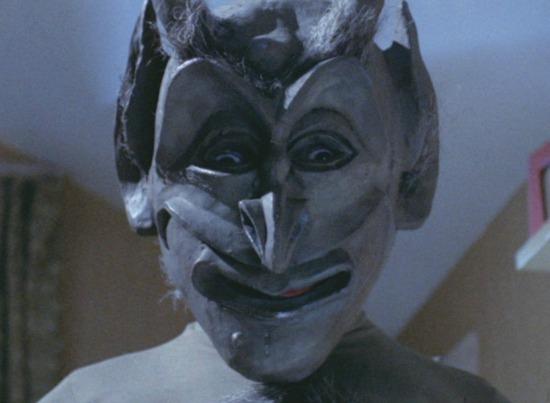
This first narrative strand is accompanied by a second one which, as we shall see, will join the first at the end of the film: we are talking about the widespread sentiment in the town about bizarre top-secret government operations that unspecified power elites - "The manipulators, the fixers, the psychopaths who have real power in the land"- they would be performing underground by Pinvin, as if they were playing "in Monopoly with our countries and our communities". It is one of the most prominent and at the same time considered most 'revolutionary' citizens in the community, Mr. Arne, to make these accusations. Here's how hers goes on j'accuse:
« The lonely (lovely?) Places technocrats choose for their obscene experiments […] You'll find the sick laboratories built on or beneath these haunted and sacred sites »
These "technocrats", therefore, would have built "perverse laboratories" under the "sacred sites" present on the territory of rural England, to carry out their "obscene experiments" undisturbed, almost as if in this way they wanted to 'bottle' the Genius Loci, to "pervert him to their dark purposes", as Mr. Arne himself states in a later dialogue with Reverend Franklin.
This accusation takes place after an unfortunate as well as mysterious fact in the village news: a group of visibly drunk boys had taken refuge at night in the fields adjacent to the village, and one of them was inexplicably disfigured by something not easily definable: "The man in the fire!Are the only words that the young man disfigured by the unknown 'strength' manages to pronounce before falling lifeless to the ground. Here is the continuation of Mr. Arne's invective, which takes on increasingly apocalyptic tones:
« The earth beneath your feet seems solid now. It is not! Somewhere there the land is hollow. Somewhere beneath is being constructed something we are not supposed to know. Top secret. […] What is it, hidden beneath this shell of lovely earth? Some hideous angel of technocratic death. An alternative city, for government from beneath »
Even this speech, with the peculiar mention of the “hateful angel of technocratic death”, will hit Stephen's imagination like a dart and will be closely linked to what was said in the first part of this article. From here, a second phase of the young man's 'initiatory journey' begins, strictly connected to the awareness of the place, Pinvin, in which he lives: a place that was also, let us remember, the native land of Elgar, which Stephen considers a sort of " occult master ".
Central to this second phase of Stephen's 'initiation' will be awareness of live in one place sacred, that is to say in a place that, in its subsoil, hides an ancient mystery that only a select few are able to discover and understand. Something really lurks in Pinvin's underground, but it's probably not top-secret government experiments or "technocratic angels of death" - not only that, at least.
As in the best tradition folk horror, the landscape rises to the leading role in its interaction with the main character: more, it becomes a founding element of the "crisis", and of its subsequent rebirth. So we find here one of the topos par excellence of the vein folk horror, that means
« ... a landscape which effectively breaks down the main character's ego, unleashing his sexually complex id through contact with the ancients as well as the surreal and the supernatural »
according to the definition given by Adam Scovell in his essay Folk Horror: Hours Dreadful and Things Strange [5].
In the midst of a couple of experiences lived by Stephen halfway between the real and the surreal - or the supernatural, in fact -, he sees the name of the native town PINVIN change first into PINFIN, then into PENDEFEN. Stephen will not be able to understand the meaning of this view until he, consulting an old dictionary, he discovers that the current nomenclature "Pinvin" and the more ancient one "Pendefen" derive from an even more ancestral toponymy, of which almost anyone seems to have lost memory: "PENDA'S FEN" - the "Palude di Penda". Who was this Penda in honor of which the village was formerly dedicated remains a mystery until almost the end of the film.

And it is precisely the resolution of this enigma that represents the third and final phase of the protagonist's 'initiatory journey'; but we will talk about it at the end of the article. First, it is necessary to point out two other topical scenes from the film. The first is that in which Stephen, in dialogue with his father, discovers once and for all that not even the latter, despite being a prelate, blindly places his faith in the dogmas of Christianity. Among other things, he reveals to him that "Some say the spire of a church acts as an aerial, attracting around it the old elemental forces of light and darkness in combat».
The Church, Therefore, it has always fought within itself this age-old struggle between the elemental forces of Light and those of Darkness. We stand by new in the presence of the Gnostic-Manichaean theme that had already emerged previously. But here, even more blasphemous, the reverend adds that he is not sure which side the Church has taken sides all this time. On the other hand, the prelate acknowledges, "When the church, any church goes to war against an older god, it has to call that older god the devil», Bringing to his son the example of Joan of Arc, of which it was said she practiced the «old religion», the "primitive religion of the fields and villages" [6]. Who prayed to the heroine - the reverend wonders with yearning - when, amidst the flames of the stake, he implored his god to welcome her into her grace?
« The plaster Christ of the cathedrals or her old, elemental village god? The son of Adam, son of man. The torn, flayed hero, bleeding on the tree. The old man god. Unchanging, ever changing. Samson, Marduk, Jesus, Balder, Heracles. By whom the world is haunted since the first beat of the heart of man. »
In the continuation of the dialogue it is also clear that, in the opinion of the Reverend, we should go back to "pagus", That is to say to the community life of the village, a dimension" on a human scale ". A yearning that he summarizes in the imperative "Revolt from the monolith… come back to the village». Following the revelations - both the verbal ones of his father, and the dreamlike ones previously occurred - Stephen begins to doubt more and more strongly about his education within Pinvin's society, his dogmas and his rules, his personal social and religious education. , of the very meaning of Good and Evil.
The second scene that must be remembered is that ofencounter with the spirit of Sir Edward Elgar. The latter reveals to Stephen the secret of his poem "The Dream of Gerontius": if played overlapping another theme, which the musician reveals to him in a whisper, he is able to open the gates of heaven and hell. So, having retired in solitude one afternoon in the local church, Stephen sits at the organ and, playing the two overlapping themes as Elgar had indicated, magically opens a chasm in the floor. At the peak of the execution, a crucified Christ calls him by name and implores him: "Unbury me. Free me from this tree". Shocked, Stephen definitively interrupts the musical performance, and the floor of the church closes again as if it had never cracked.
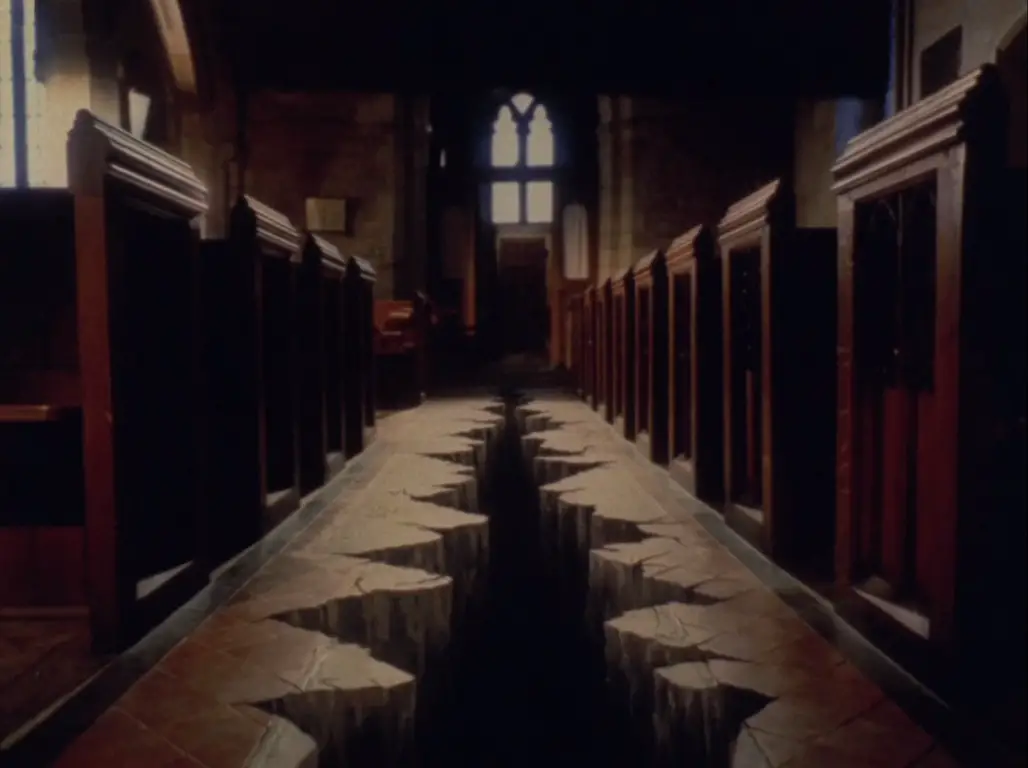
« What mystery of the land went down with him forever? What wisdom? When Penda fell, what dark old sun of light went out? »
But let's go back to the exchange between Stephen and his father reverend, because it is during this dialogue that Stephen learns where the etymology of the name of his country comes from: Penda was the name of the last pagan king of England (died in 655 AD) and legend has it that when he had to surrender to the Christian invaders he did not die, but went into hiding underground, from where invisible continues to communicate to the chosen spirits that, through the 'search' for truth Genius Loci of Pinvin, manage to make contact with him - as the musician Edward Elgar and, as we shall see, Stephen himself.
In booklet attached to the DVD is a presentation of Penda's Fen written by Sukhdev Sandhu [7] which reads:
«Paganism itself has, in many quarters, been reduced to a synonym for something witchy and cabalistic. The film, through, treats it as being about the politics of scale, and draws attention to the word's etymology - of the village - to suggest that radical questions and alternative answers are present not out there in the universities, museums or sanctioned citadels of learning, but closer to hand, on the ground beneath our feet. Penda himself becomes a symbol of heretical nationhood, of pre-Christian identity, of an imaginative wildscape which has the potential to redeem us from the lies and orthodoxies of state knowledge. »
It should also be emphasized that, before the final meeting with King Penda, Stephen is approached in a suspicious way, on the hills surrounding the village, by two strange characters who try to win his favors, pretending exponents of phantom "forces of Light". But when the latter, unmasking his sinister intentions, refuses to take their side, the two magically set the flames on his body. [8]. This would be fatal, if Stephen did not invoke the name of King Penda: suddenly the fire vanishes and the boy finally meets the daimon of the village, from which Pinvin took its name. Penda frames the two shady characters above as "true guardians [9] of England, sick father and mother who would have us children forever».
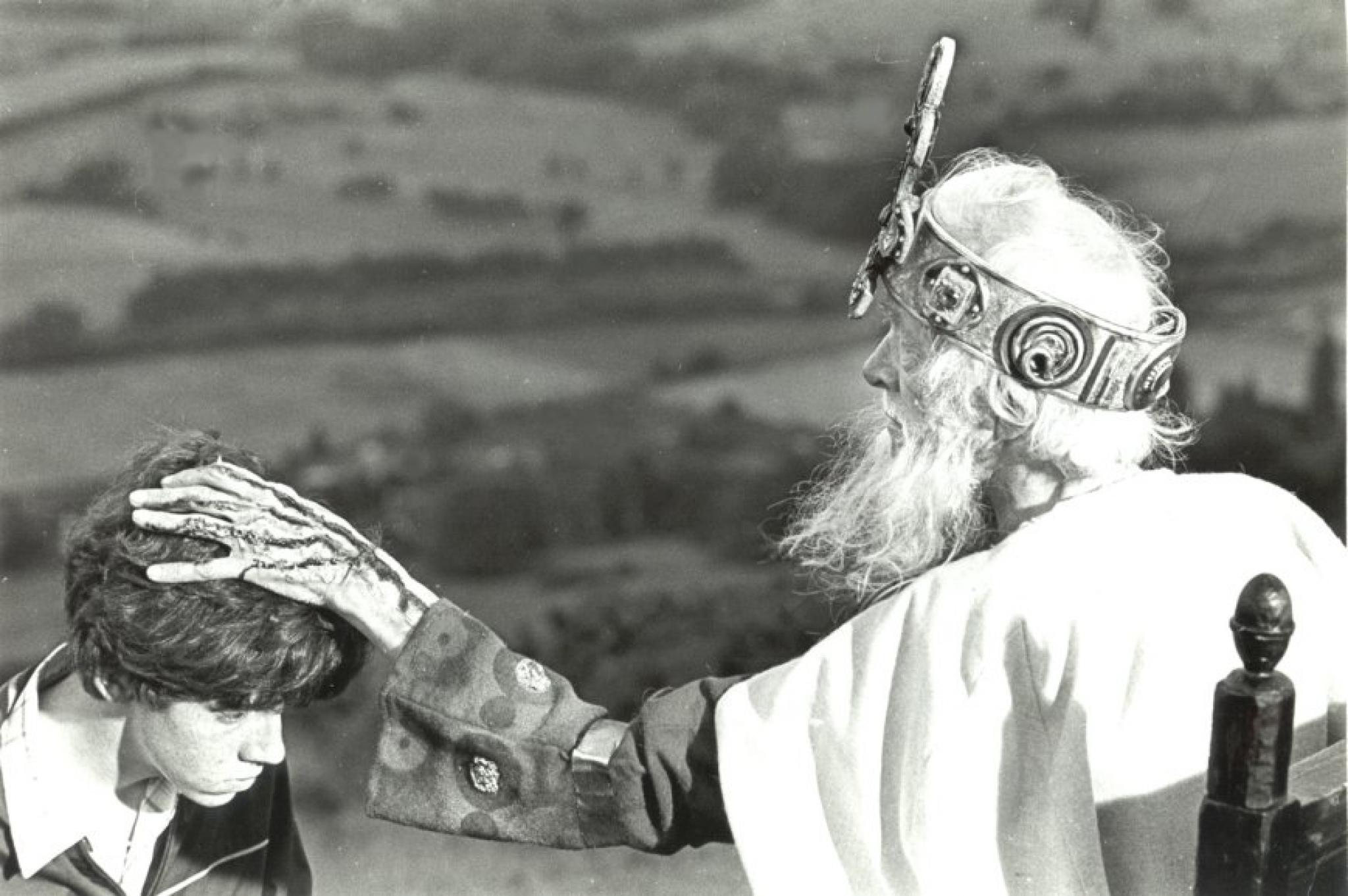
The character of King Penda refers to a topos - That of the ancient ruler lying in an occult and comatose state in an underground place where he is forced to reside until his rebirth - which he finds in the exile of the god Kronos in Ogygia or at the “Isola dei Beati” his first example in the history of Western religions, but which also and above all appears in medieval times. This complex of legends concerning "characters kidnapped in the invisible, and will "never die", destined to "awaken" or re-manifest themselves at the end of a certain timeAre, as Julius Evola noted [10], «Various incarnations of a single theme, transposed from reality to superreality». These beliefs are found for example in the sagas that convey the idea of a future return of Odin, King Arthur and Frederick Barbarossa from their respective 'underworld' dwellings (Avalon, Etna, the Kyffhäuser in Thuringia).
It should be borne in mind, however, that the infernal aspect of such places should not be understood in a purely chthonic-underground sense, but rather, as we have emphasized elsewhere [11]:
"[...] behind a purely telluric-chthonic idea of depth seems to hide, in the wisdom of Myth and Tradition, a much deeper dimension, decidedly more abysmal, and yet not in a physical-material sense (the subsoil), not on this earth: but in the heavens, in theCosmic abyss. In Hellenic mythology, this abyss is called Tartarus: in Phaedo (111e-112b) Plato speaks of this place as an abyssal dimension, not subterranean to our world but rather superimposed, probably alluding to its extra-temporal dimension (Avallon, the Island of the Hesperides, Ogigia). "
In other words, the character of the ancient sovereign who, instead of dying, withdraws into an underground and occult state on the one hand encloses in his symbolic complex all that has been and that, despite everything, the collective unconscious of the communities still keeps alive. , in the recesses of one's soul: a sort of anima mundi collective and community or, precisely, of Genius protector of the place and of the community, both in the guise of a cultural hero and, geographically, of his native soil which - far from being seen from a merely material point of view - rises to the womb and cradle of the community.
It follows that the character of Penda as the mythical occult ruler is recognized as one status not merely allegorical-symbolic but - as in fairy tales, folklore and myth - he rises to a real founder-initiator hero, whose figure recalls that of the "old sage" who, retired from the world, has achieved in the ages a 'sacred' knowledge and communicable only to the elect who know it cercare e find out, as well as that of the "King of the World" of Himalayan and Mongolian legends who, from the underground and inaccessible kingdom of Agharti / Shamballah, continues to 'subtly' influence the development of surface events, mystically entering into telepathic contact with those that prove worthy to share his wisdom.
In Penda's Fen, Stephen's meeting with the occult king coincides with the decisive moment in which the protagonist is completely reintegrated with his own intimate, multifaceted nature: now nothing appears to him anymore "unnatural"And no longer lives his"mixed nature”With shame and horror. Like this Re Penda, which in his person symbolically embodies the 'world view' of that ancestral time that not only was, but still persists underground and occultly for those who know achieve it, allows Stephen to find out its place in the world, finally free from dogmas that deep down he never felt as truly his. During the final scene, Stephen receives a real 'coronation' from the ancient king, who, as if to pass him a baton who never died nor will die, states in a cryptic way:
« Our land must live. This land we love must live. Her deep, dark flame must never die. Night is falling. Your land and mine goes down into a darkness now. And I, and all the other guardians of her flame are driven from our home, up out into the wolf's jaw. But the flame still flickers in the fen. You are marked down to cherish that. Cherish the flame till we can safely wake again. The flame is in your hands, we trust in you. Our sacred demon of ungovernableness. »
Only by keeping alive in one's most abysmal depths the "sacred demon of ungovernability" that distinguishes the human being worthy of the name is it possible to care for and feed the "dark flame that flickers in the swamp": an image that is clearly equivalent to "Divine spark" present in the depths of human consciousness, which, influenced and manipulated by the predominant social and religious dogmas, risks sinking and disappearing into the swamp of conformity and frustration. In this sense, as already noted by Sandhu, the ancient European pre-Christian tradition stands as an alternative and more articulated perspective under which to interpret the problematic knots of existence, not from a moralistic or even Manichaean point of view, but rather holistic, “All-round”.
In closing the speech, King Penda begs the chosen young Stephen not to give up his 'dark' sides, because it is precisely from coincidence oppositorum of the latter with those more canonically considered 'positive' that that "flame in the swamp" rises in the recesses of human consciousness to look after and keep alive, until the long-awaited moment in which the ancient gods will once again be able to awaken from their long hibernation:
"Cherish the flame, we shall rest easy. Stephen, be secret. Child, be strange. Dark, true, impure, and dissonant. Cherish our flame, our dawn shall come. »
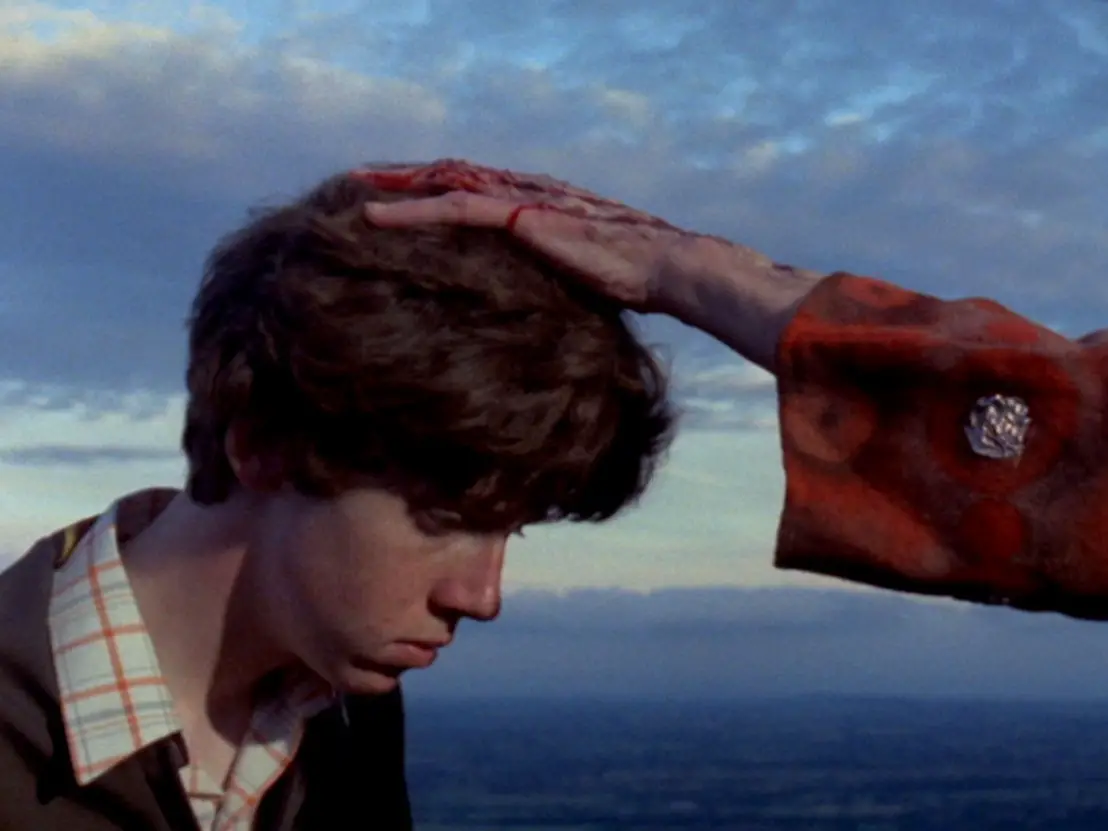
Note:
[1] Su The Wicker Man, cf. M. Maculotti, Beautiful Soundtracks: The Wicker Man, on Noisey Italia.
[2] This is a typical theme of films that can be classified as folk horror, which we also found in Picnic at Hanging Rock by Peter Weir; cf. M. Maculotti, Picnic at Hanging Rock: an Apollonian allegory, on AXISmundi.
[3] DVD booklets.
[4] See M. Maculotti, The phenomenon of sleep paralysis: folkloric interpretations and recent hypotheses, on AXISmundi.
[5] Adam Scovell, Folk Horror: Hours Dreadful and Things Strange, Author, 2017, p. 71. Scovell is also the founder and editor of the blog folk horror par excellence, Celluloid Wicker Man, where you can read two articles on the film being analyzed here: Ritual And Identity in Penda's Fen (1974) - Alan Clarke e A Sacred Demon Of Ungovernableness: Penda's Fen (1974) and Folk Horror.
[6] «Joan of Arc […] was born in 1412 in the village of Domrémy, in the Vosges, in a Lorraine district where a century earlier the synod of Treves had condemned all kinds of magic, spell, witchcraft and superstitious writings. [...] Giovanna's brother declared that from an early age she went under the "tree of the ladies" [or fairies, ed], where he often met them and "from which he learned his business" ». (M. Conese, The disease of the fairies. Origins of fairy beings. Studio Tesi, Rome, 2012, pp. 124-125).
[7] An article by S. Sandhu is also available online: Penda's Fen: a lasting vision of heresy and pastoral horror, in The Guardian.
[8] By means of an act of "sympathetic magic" performed with the aid of an instant camera, the photograph of which is suddenly set on fire to magically inflict the same damage on the intended (and photographed) victim. From this scene we can also understand the cause of the previously mentioned fact concerning the young man burned in the neighboring fields to the town.
[9] Probably here in the meaning of "guards", "prison guards", therefore with a function similar to the Archons of the Gnostic doctrine.
[10] J. Evola, Revolt against the modern world, p. 188. On the mythologeme of the ancient (god) sovereign in exile / coma in an underground, occult and / or timeless dimension, awaiting a future awakening / rebirth, cf. M. Maculotti, Apollo / Kronos in exile: Ogygia, the Dragon, the "fall" and D. Perra, The myth of concealment in Eurasian traditions, on AXISmundi.
[11] See M. Maculotti, Divinity of the Underworld, the Afterlife and the Mysteries, on AXISmundi.

He posted it back up EMOTIONAL CYANIDE LEFT SOUL INK.